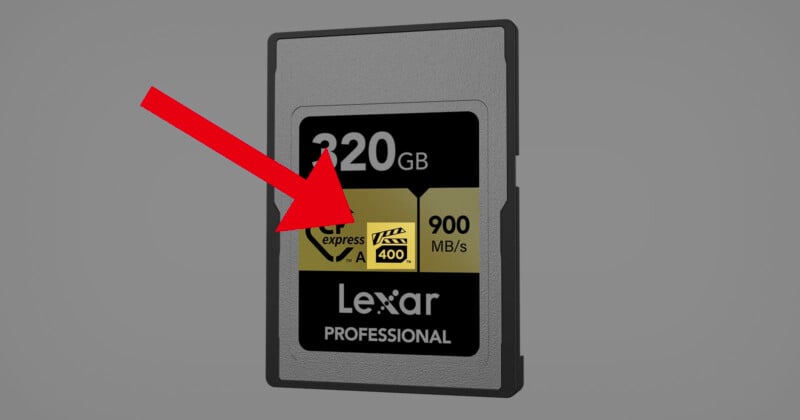It Took Six Months, But CFexpress Card Makers (Mostly) Cleaned Up Their Acts
![]()
In December, PetaPixel published a deep-dive on the wild west of CFexpress cards, highlighting how many were outright ignoring vital portions of the specification that allowed the cards to work properly with Sony cameras. Today, the story is very different.
The main issue with CFexpress Type A cards, which today only Sony cameras use, was that they were not getting Video Performance Guarantee (VPG) certification. Sony points out in its user manual for cameras that shoot at either high resolution or high framerate (or both) that they require a CFexpress Type A card to score at least VPG200. If a card doesn’t have this certification flagged in its firmware, certain features are disabled. The Alpha 1, for example, is one such camera to require this.
Instead of working with the Compact Flash Association (CFA), the organization that creates and manages the CFexpress specification, some companies were either pretending the VPG certification wasn’t necessary or were faking the firmware flag that gave the virtual “thumbs up” to a Sony camera even if the cards weren’t actually capable of holding up their end of the bargain. That could lead to dropped frames or worse, corrupted data.
It took about six months but as of the end of June, all of the major offenders who were part of that original report have cleaned up their acts — except for one. Back then, the biggest offenders were Exascend, Wise, Pergear, and Angelbird. As of June 28, Exascend, Wise, and Pergear all produce cards that are VPG certified and are listed on the officially supported list.
Angelbird remains the only brand that is not mentioned, but to its credit, it no longer produces the memory card that violated the process. That’s better than nothing, but why we felt compelled to add “mostly” to the title of this report.

At least in some cases, falling into line wasn’t exactly a willing process. When Wise updated its cards, the company’s Senior Product Manager Frank Wang seemed almost indignant that it had to back up its claims officially.
“Now that we are VPG certified and fully compliant with industry standards, Alpha users can make a choice,” Wang said. “It’s about authenticity and reliability, right? There are options now.”
Willing or not, all major memory card makers that are actively producing CFexpress Type A memory cards for Sony cameras are doing so by the book.
There Are Now Options for Nearly Every Budget
The biggest takeaway from more compliance is that for Sony photographers, there are options that fit into every budget now. CFexpress Type A has its advantages (mainly the size), but that came at the cost of significantly higher prices made worse by just a handful of brands making high-quality, verified options. Now, six months later, 12 companies are making VPG-verified cards at a wide range of prices:
Note: BIWIN and Chipfancier are also listed as VPG compliant, but are not actively selling cards in the United States at the time of publication.
Some of these certifications have happened so recently that the companies have not yet updated their marketing images to include the VPG certification logo (such as is the case for Homan and Pergear, for example) but are recognized on the CFA’s website.
Among that list is a mix of VPG200 and VPG400 options and since Sony only requires VPG200, all these cards will work with all options in Sony cameras like the Alpha 1 and a7S III. The lower VPG200 spec means a lower asking price but the availability of VPG400 options gives high-end shooters the performance they need. That means cards are as affordable as $179 or as expensive as $550 (or more) depending on need.
While all the major names are playing ball now, there are still reasons for photographers to be cautious. There are brands — albeit basically unknown ones — that are producing CFexpress Type A cards for super cheap and should be avoided. These are a lot easier to spot, however, and now at least photographers don’t have to second-guess options for brands that should have been reputable from the very start.
Kudos to ProGrade Digital, Sony, Lexar, Nextorage, and Delkin for being forthright with customers from the get-go.
Image credits: Elements of header photo licensed via Depositphotos.